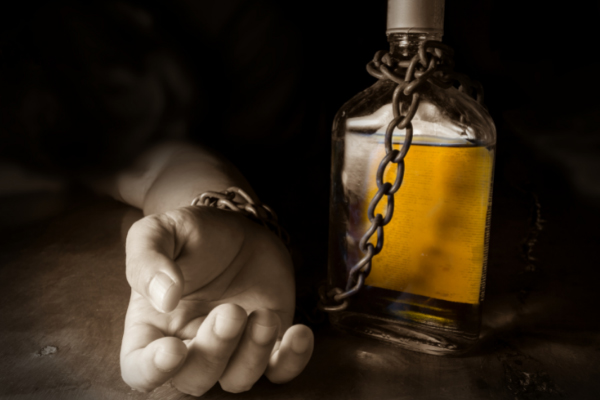Alcoholism is a disease of the mind and emotions, and like all illnesses, a person can recover or get worse. Alcoholism was identified as a disease by the American Medical Association in 1956. Since then, many decades of research have been conducted to determine why it is a disease, what causes it, and how to treat it. In light of this research, we now understand alcohol’s effects on the brain more clearly. Scientists and doctors have discovered that the reward pathway in the brain that releases dopamine when alcohol is consumed plays the most vital role in why alcoholism is a disease. A symptom of alcoholism is an inability to control alcohol intake, yet at the same time, it is the alcohol that treats the disease of alcoholism.
More About Alcoholism
The prevalence of alcoholism is higher than any other substance abuse problem. A person who drinks too much and becomes an alcoholic can be of any age, gender, race, or financial status. Alcohol is socially acceptable and legal so that anyone can experience drinking problems at some point in their lives. Others have lived their entire lives as an alcoholic. Drinking alcohol daily causes an individual’s body to become physically dependent on alcohol and experience alcohol withdrawal symptoms if they do not drink. Among people aged 12 or older in 2020, 50.0 percent (or 138.5 million people) drank alcohol in the past month. (SAMHSA)
Signs of Alcoholism
If someone consumes large quantities of alcohol daily, and especially if they drink large amounts of alcohol every day, their bodies will experience alcohol withdrawal symptoms once the alcohol wears off. Hangovers are also symptomatic of alcohol withdrawal for average drinkers, but they do not strongly indicate alcoholism. Alcoholism occurs when persons can’t control how much they drink and continue to drink even though they face serious trouble in their lives. They use alcohol to cope with their emotions, and it is how they self soothe and self-medicate. The most significant sign of alcoholism, which is also referred to as an alcohol use disorder to indicate severity, is the presence of alcohol withdrawal symptoms.
What Are Alcohol Withdrawal Symptoms?
Alcohol withdrawals are dangerous, and the person suffers enormous amounts of anxiety and flu-like illness. Most alcoholics experience alcohol withdrawals, which is why they cannot stop drinking. They do not want to endure the withdrawals, not much different from heroin addiction. Alcohol withdrawals begin in as few as two or three hours after the last drink and cause:
- Intense anxiety and panic attacks
- High blood pressure
- Heart palpitations
- Hallucinations
- Shaking, muscle spasms, rapid pulse
- Insomnia
- Vomiting, diarrhea
- Profuse sweating and dehydration
- Seizures
- Risk for heart and or brain failure
What Can You Do to Help an Alcoholic?
A person who has become physically, emotionally, and mentally dependent on alcohol needs professional help. The first step to help someone is to assure them that they will receive medications to treat their alcohol withdrawal symptoms and lower their anxiety. Unfortunately, a person cannot overcome alcoholism by themselves. The treatment for an alcoholic now consists of safe, effective medications during and after detox, combined with evidence-based forms of therapy proven to be effective in treating alcoholism. Evoke Wellness in Coconut Creek provides same-day admission to our alcohol detox and personalized alcoholism treatment program.
What Do the Experts Recommend For Treatment?
The National Center for Biotechnology Information advances in science and health, documents the effectiveness of safe and effective alcohol withdrawal medications and recommends them for treating alcoholism.
Benzodiazepines are the mainstay of treatment in alcohol withdrawal. Benzodiazepines are safe, effective, and the preferred treatment for AWS. Benzodiazepines are cross-tolerant with alcohol and modulate anxiolysis by stimulating GABA-A receptors. During withdrawal from one agent, the other may serve as a substitute. They are proven to reduce withdrawal severity and incidence of both seizures and delirium tremens. (NCBI)
Personalized Evidence-Based Treatment For Alcoholism is Here
We at Evoke Coconut Creek provide instant access to our medically supervised alcohol detox, followed by in-depth alcohol treatment programs that use cognitive behavioral therapy, holistic therapy, motivational interviewing, one-on-one counseling, and personalized recovery formats for all our patients. Call now to end the torture of drinking all the time. We can provide you with the way to freedom from alcoholism. Call to begin today.



